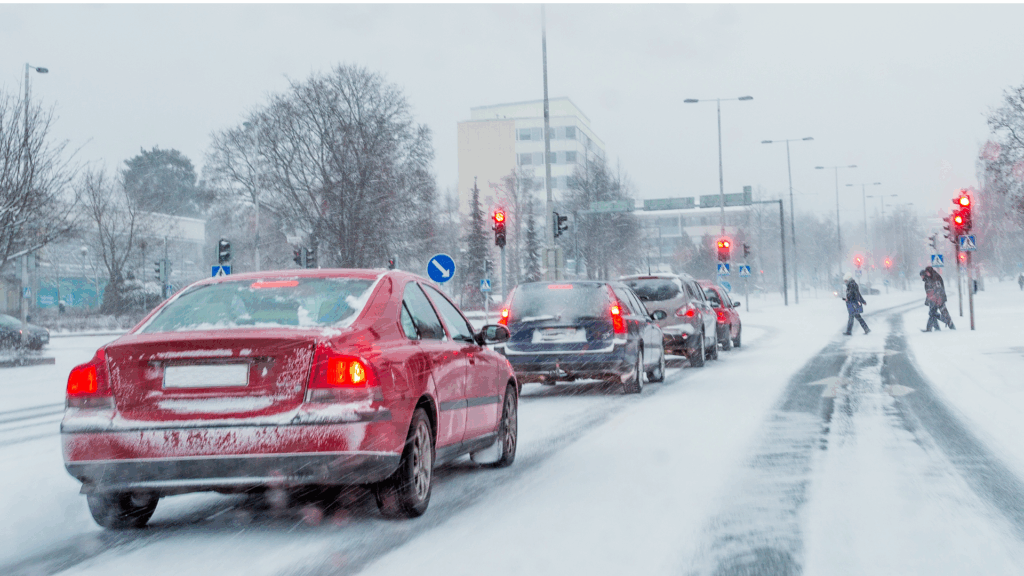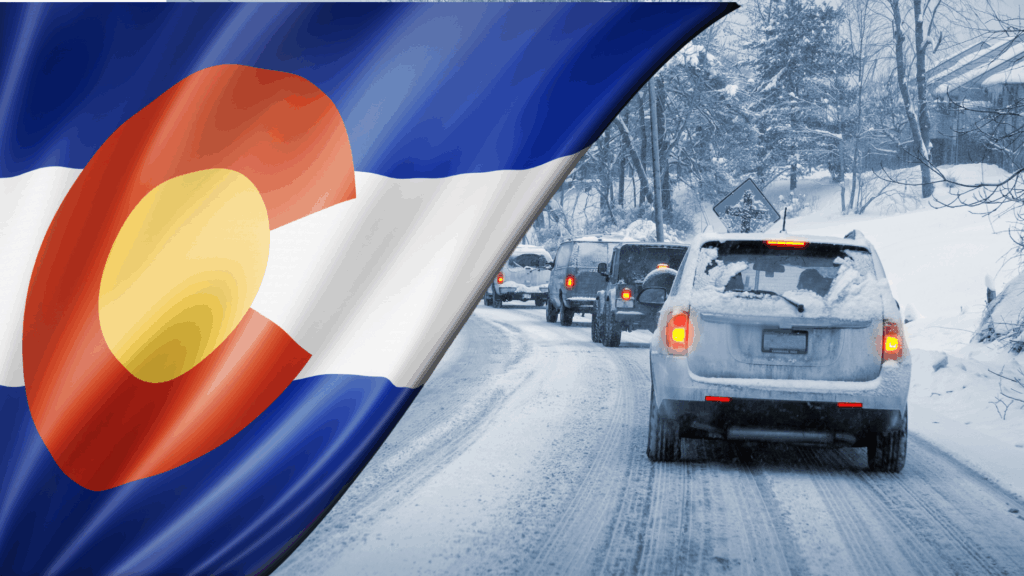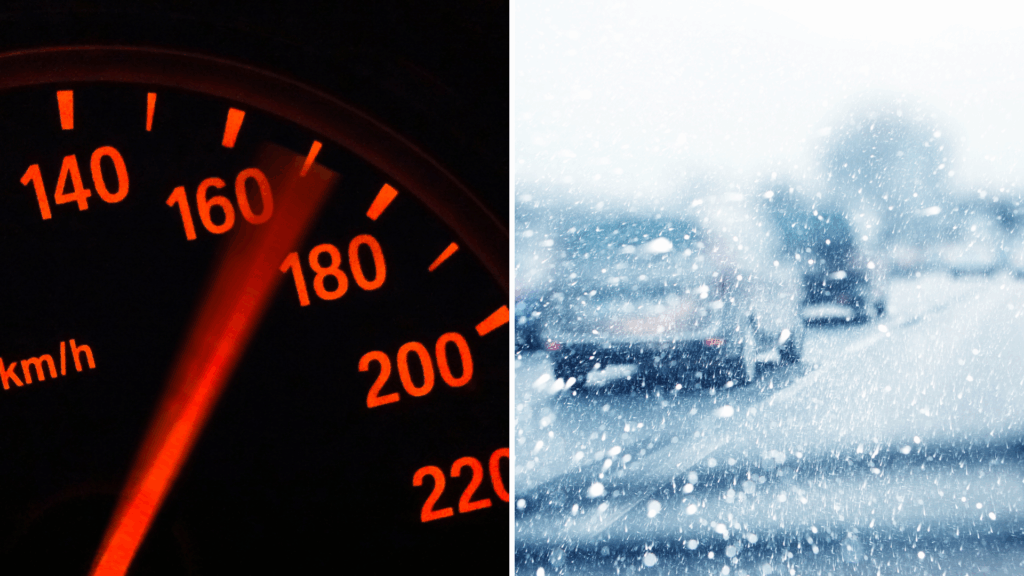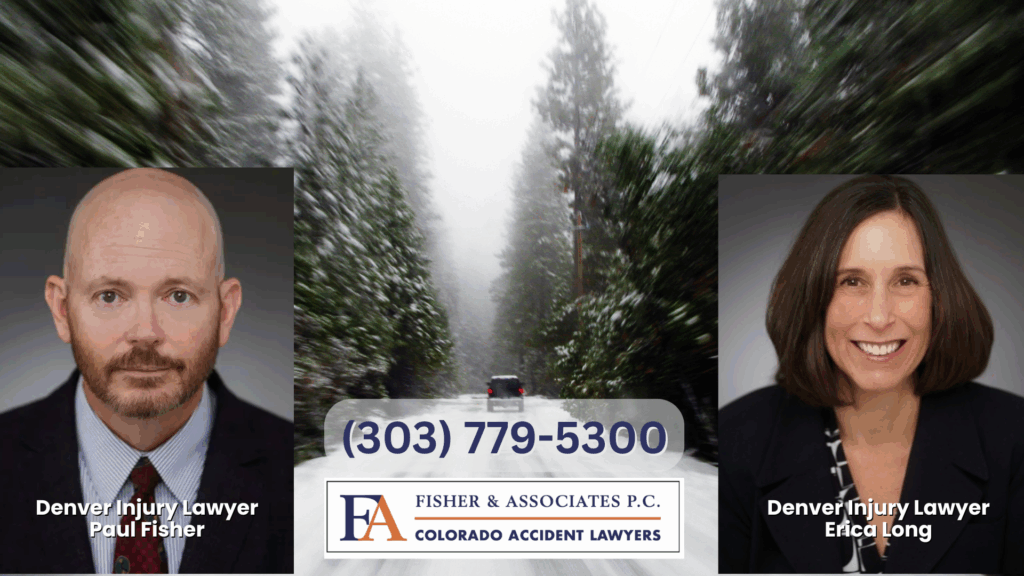
When the snow starts falling and icy roads become the norm, Colorado drivers face more than just tough conditions—they face complicated legal questions about fault and responsibility. Understanding how winter weather impacts liability in Colorado crashes is essential for anyone involved in a collision during the colder months. While winter driving can be hazardous, poor weather alone doesn’t excuse careless driving under Colorado law.
This guide explains how liability is determined in cold-weather collisions, what role factors like black ice and cruise control play, and what steps you can take to avoid accidents and protect your rights.
Car Accident Liability Doesn’t Disappear in Bad Weather
Colorado drivers often assume that snow, sleet, or black ice will automatically shift blame away from the person who caused the crash. But in most Colorado car accidents caused by bad weather, the law still looks at whether a driver acted negligently or carelessly.
Under Colorado’s modified comparative fault system, a driver can be held responsible if they failed to take reasonable precautions for the weather. Even if conditions contributed to the crash, drivers are still expected to adjust their behavior to avoid accidents.
Examples of negligent driving in winter weather include:
- Driving too fast for conditions
- Failing to clear snow and ice from windshields
- Following too closely on icy roads
- Using cruise control on slick highways
- Not using headlights during snowstorms
In other words, poor weather might help explain the crash, but it rarely excuses it.
How Colorado Law Views Accidents Caused by Snow and Ice

Colorado law expects drivers to exercise a duty of care, regardless of weather conditions. This means adjusting your driving habits based on road visibility, ice, snow buildup, and other hazards. If a driver fails to act reasonably under the circumstances, they can still be held liable for any accidents caused.
Common Factors That Affect Liability in Winter Crashes:
- Black Ice: Drivers who lose control on black ice may still be liable if they were speeding or not paying attention.
- Poor Visibility: Fog or snow doesn’t excuse running a red light or rear-ending another vehicle.
- Improper Tires: Not using snow tires or chains when required could be seen as negligence.
- Uncleared Vehicles: If snow or ice flies off your vehicle and causes a crash, you may be held responsible.
At Fisher & Associates, we help clients prove when the other driver failed to meet these responsibilities.
Colorado Car Accidents Caused by Careless Driving in Bad Weather

Careless driving is one of the most common contributors to winter weather crashes. Colorado statutes specifically prohibit driving “in a careless or imprudent manner,” which becomes especially critical during snowstorms or icy conditions.
Some careless behaviors in bad weather include:
- Not slowing down on bridges or overpasses (which freeze faster)
- Speeding through snowy intersections
- Swerving or braking suddenly on slick roads
- Relying on cruise control on slippery highways
If you’re hit by a driver behaving this way, you may be entitled to compensation for your injuries, even if the weather played a role in the crash.
Driving Safely During Colorado’s Harsh Winters
While no one can control the weather, there are several ways drivers can reduce their risk of being involved in a winter crash. Following these tips helps you avoid accidents and shows that you’re doing your part to drive responsibly:
- Reduce speed well below posted limits in snow or ice
- Maintain extra space between you and other vehicles
- Avoid sudden braking or acceleration
- Never use cruise control on icy roads
- Always clear all windows, mirrors, and headlights of snow
- Use headlights, even during the day, in snow or fog
Demonstrating that you were driving safely and responsibly can make a big difference if you’re involved in a claim.
Why Proving Liability Can Be Challenging in Winter Crashes
Weather-related crashes often involve complex investigations. Snow can cover skid marks. Fog may obscure security camera footage. And insurance companies frequently argue that no one was really at fault due to the weather.
That’s why it’s critical to gather evidence quickly after a winter collision, including:
- Photos of road conditions
- Vehicle damage
- Witness statements
- Police reports
- Weather data
At Fisher & Associates, we act fast to preserve this evidence and build a strong case for our clients.
Your Collision Resource: Fisher & Associates

When you’re injured in a winter weather crash, you don’t just need a lawyer—you need a team that understands Colorado roads, insurance company tactics, and what it takes to hold negligent drivers accountable, no matter the weather.
Fisher & Associates is your legal resource for navigating the legal and emotional impact of winter crashes. We listen to your story, explain your rights clearly, and take on the insurance companies so you can focus on recovery.
Our founding attorney, Paul Fisher, knows the road firsthand. As an MSF-certified motorcycle riding instructor who teaches riding skills in inclement weather, he understands the dangers of snow, black ice, and reckless drivers better than most.
We don’t just handle cases. We help people feel heard, supported, and protected during one of the most stressful times of their lives.
FAQs: Winter Weather and Liability in Colorado Car Accidents
1. If I slide on ice and hit another car, am I automatically at fault?
Not always, but in most cases, you’re expected to maintain control of your vehicle regardless of conditions. If you were driving too fast or using cruise control on icy roads, you could be found liable.
2. Can both drivers be at fault in a winter weather crash?
Yes. Under Colorado’s comparative negligence laws, multiple drivers can share fault. If you’re less than 50% at fault, you can still recover damages, though your compensation may be reduced.
3. Does using cruise control affect liability in icy conditions?
Yes. Using cruise control on slippery roads is considered dangerous and negligent. If it contributes to a crash, it can affect liability significantly.
4. What role does black ice play in Colorado car accidents?
Black ice is common in Colorado winters. While it’s hard to see, drivers are expected to anticipate it in certain conditions (e.g., shaded areas, bridges). Losing control on black ice doesn’t automatically remove liability.
5. How can I protect myself legally after a bad weather crash?
Document everything: photos, road conditions, witness info, and your medical treatment. Then contact an experienced personal injury lawyer to help guide you.
Contact Fisher & Associates Today
Winter crashes in Colorado can leave you hurt, confused, and unsure of what comes next. You deserve more than just a claims process—you deserve someone who will listen, advocate, and fight for your right to fair treatment.
At Fisher & Associates, we provide:
- Free, no-obligation consultations
- Help navigating medical bills and insurance claims
- A compassionate legal team that treats you like family
- No fees unless we win your case (Client may be responsible for costs and fees not covered by recovery)
Let us take the legal burden off your shoulders so you can focus on healing.
Call (303) 779-5300 or contact us online to schedule your free case review today.

Erica Long represents plaintiffs in all forms of accident cases including car and motorcycle accidents, wrongful death, and slip and fall injuries. She is licensed to practice law in both the State of Colorado and the State of California. Ms. Long earned her bachelor’s degree from the University of California, Berkeley and her Juris Doctor degree from the University of California, Berkeley School of Law.

